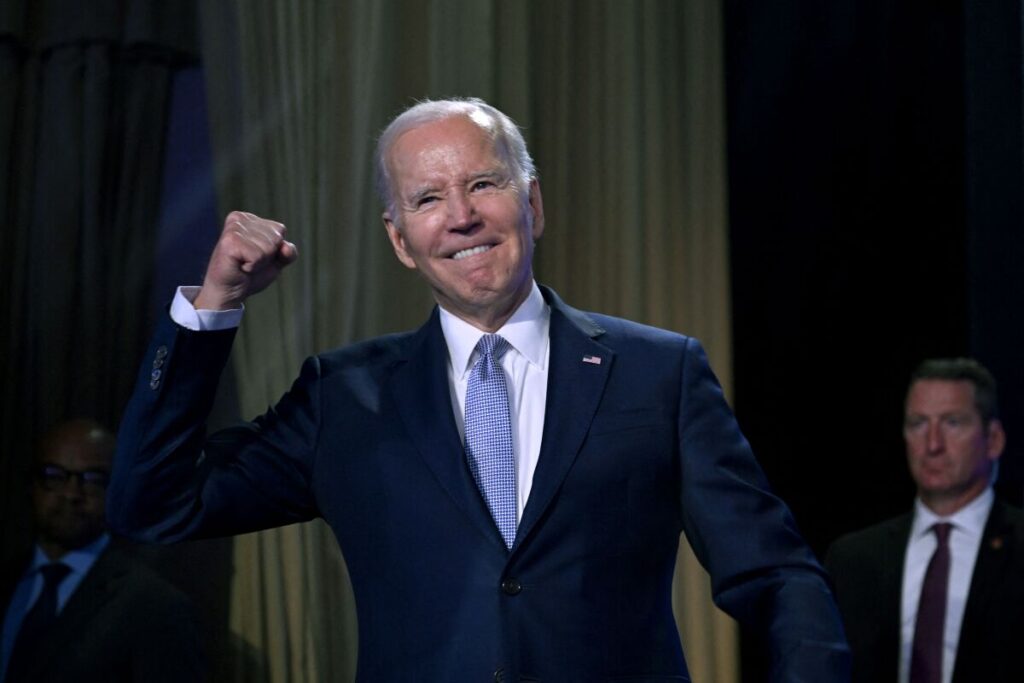Economy
Biden Obtained Billions in Domestic Funding, and Now What?
President Biden is redirecting large portions of the federal administration to concentrate on executing the far-reaching legislation he approved during his initial two years in power while instructing his top advisors to prevent any misuse and deceitfulness that have plagued prior government initiatives.
$2 trillion of public funds
Mr. Biden is risking his credibility and heritage by utilizing almost $2 trillion of public funds with competence and productivity. If executed proficiently, the endeavor may reconstruct the economy and boost his chances of winning a second term. However, any blunders could jeopardize Mr. Biden’s prospects for re-election in 2024, as congressional Republicans have promised to scrutinize the administration’s extravagant spending thoroughly.
The House Committee on Oversight and Accountability has already targeted finances passing through the Energy Department. “The Oversight Committee is anxious about whether the Department can cope with the colossal sums of money it is bound to distribute in extremely stringent schedules,” declared Rep. James Comer (R., Ky.), who heads the committee.
Private Investments
Despite several of the provisions in the fresh statutes not being entirely established for years, there are initial signs that the extensive expenditures are transforming portions of the economy and endorsing new private investments. The White House revealed that corporations had proclaimed investments worth $435 billion since Mr. Biden assumed office, with a large portion of that transpiring after the enactment of the new bills.
The White House is also struggling to determine the most effective way to communicate to voters that Mr. Biden and the Democrats in Congress are the driving force behind the undertakings and employments they generate.
A poll conducted by Wall Street Journal-NORC last month revealed that more voters have a negative view of Mr. Biden’s initiatives to enhance the nation’s infrastructure, counter China, and tackle inflation than those with a positive opinion.
Mr. Biden and his cabinet members have been touring the nation to discuss the legislation. The president intends to add his name to signs on infrastructure initiatives nationwide.
“It’s crucial for individuals to understand how it was constructed, why it was constructed, and when it will be constructed,” expressed Mitch Landrieu, the former New Orleans mayor and a senior White House official responsible for implementation. “Narrating the account is immensely significant.”
Take 2-years of The Wall Street Journal Print Edition for $480
The Biden government is executing three extensive pieces of legislation – a nearly $1 trillion infrastructure proposal, a package tackling climate change, tax, and healthcare that involves $430 billion or more in new expenditures, and a comprehensive multibillion-dollar scheme to enhance the national semiconductor industry. The White House predicts that the statutes will create $3.5 trillion worth of public and private investment over the course of ten years.
Collectively, the legislations signed by the president in 2021 and 2022 demand the creation of numerous fresh government initiatives and mandate that agencies establish systems to channel hundreds of billions of dollars to states, businesses, and individuals.
The sum of funds that will traverse through the federal government is more than twice the amount of the economic stimulus package in 2009, which Mr. Biden carried out as vice president, and symbolizes a greater investment than the Apollo program or the Eisenhower administration’s interstate highway initiative.
Mr. Biden designated his chief of staff, Jeff Zients, an investor and former Obama administration member who assisted in revamping HealthCare.gov, the federal website for the Affordable Care Act, after it crashed in 2013, to supervise the implementation initiative. Mr. Zients enlisted Natalie Quillian, a newly appointed deputy chief of staff, to focus on the implementation process.
“Ms. Quillian described the implementation effort as the most extensive government mobilization in recent history. Mr. Zients, who played a crucial role in overhauling HealthCare.gov during the Obama administration, has been appointed by Mr. Biden to oversee the implementation effort. He briefs the president daily on this matter,” he said in an interview.
Get 5 Years of WSJ and Barrons Digital
Furthermore, the president has tasked four senior aides to oversee specific parts of the program. Mr. Landrieu has been appointed to handle the implementation of infrastructure. At the same time, John Podesta, a veteran of the Clinton and Obama administrations, is responsible for overseeing the rollout of hundreds of billions of dollars in federal spending on clean energy projects included in the climate change, tax, and healthcare package. Ronnie Chatterji, an economist, and former Commerce Department official, is also assisting with implementing the semiconductor law.”

